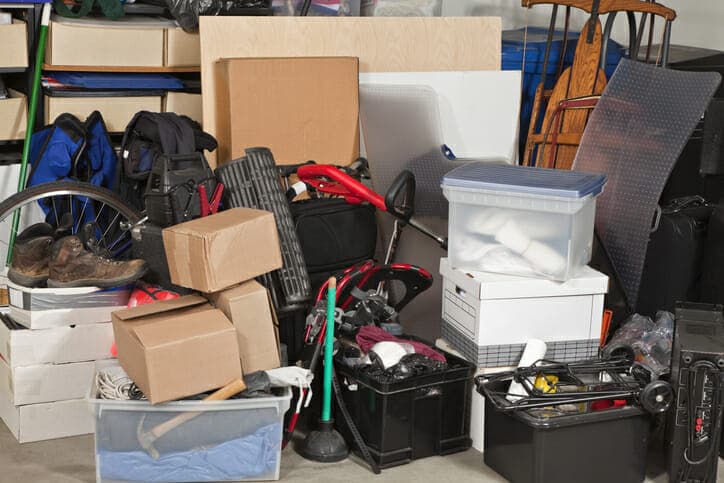
A friend or family member may ask you to help with an extreme decluttering project for someone they love who is overwhelmed and is living with clutter. You care about the person and would love to help.
Offering to Help with an Extreme Decluttering Project
Offering to help is a wonderful thing to do. It is also very difficult. It will probably take a lot longer to complete this extreme decluttering project than you expect.
Prepare yourself to meet with resistance from the person you are helping.
First and most importantly make certain that the person with the decluttering project really wants your help. You can be available but wait to be invited. The person must be ready for your help.
How to Start
When you are invited to help, go slowly and listen carefully to the person you are assisting. Watch their body language. Understand that you are there as a helper, they are in charge and are making all the decisions.
The first time you come to their home, smile, and look directly at the person. Pay attention and don’t let your eyes wander to the clutter inside the door. Keep your body in a relaxed open stance. The person is most likely scared, nervous, and hesitant about letting you help. You may be the first person they have allowed to see their overwhelming and extreme clutter.
They may ask for help in a certain area or they may not know where to start this extreme decluttering project.
Safety First
Start with what is good. If they have more than one exit that is easy to access, congratulate them. Notice if there are open paths to walk and complement them on keeping walkways safe.
Ask if they will give you little tour of the home. If you see something that seems unsafe or unhealthy like blocked air vents or heating ducts, you could ask them if they would like you to move something to unblock the vent. Notice that you are only moving something, not removing it.
Before You Begin
Be aware before you begin that it is very important to always ask permission before touching anything. Even a small piece of paper or a box in the pathway should not be touched or moved without that permission. Moving items from one place to another can be distressing. Even though stacks may look random to you, they know where their possessions are and can panic if they can’t find them.
It probably took some time to be invited into the home. You want to be able to come back and help again. It is important that you keep their trust.
As you walk through the home you may notice an area where there are larger piles. If the person has no idea where to begin this extreme decluttering project, you might suggest one of these areas. If they say, no, don’t argue.
How to Handle Resistance
As you work together, you may find some items that are broken, chewed on by critters, or damaged beyond use. You can show it to the person and ask if they would consider throwing it away. If they want to keep it. Do not argue. Give them some facts. You may show them where the item is broken, moldy, or damaged beyond repair. Remind them that they have other items that are similar to that item and that the two of you are trying to declutter.
If there is still resistance you might ask them to tell you the story behind this object that they want to keep.
Notice if the person seems tired and emotionally drained. Making decisions regarding their possessions is exhausting. Ask if they are ready to stop for the day. It is important for you to leave before you’ve outworn your welcome.
Conclusion
Move very cautiously when giving help. Beginning an extreme decluttering project can be very frightening to the person who owns the clutter. Often when we don’t know what to do, we either do nothing or we rush in and try to do too much. As a helper, read up on literature that can guide you. Continue to work with compassion and a healthy dose of common sense.
For more information on working with people who are overwhelmed with extreme clutter, check out our book Filled Up and Overflowing: what to do when life events, chronic disorganization, or hoarding go overboard.
Jonda S. Beattie, Professional Organizer owner of Time Space Organization, and co-owner of Release, Repurpose, Reorganize. She is based in the Metro-Atlanta area. As presenter, award-winning author, as well as a retired special education teacher she uses her listening skills, problem solving skills, knowledge of different learning techniques, ADHD specialty, and paper management skills to help clients tackle the toughest organizational issues. Jonda does hands on organizing and virtual organizing. For more of Jonda’s tips connect with her on Facebook.
I Love what you say about asking permission. It’s so important to maintain the person’s trust. Asking permission to handle their things lets them know they are in charge and that you are following their lead.
This is such stellar advice, and while it’s aimed at friends and family being called upon to help, brand new professional organizers would benefit from this wisdom. Too often, everyone jumps in trying to solve “the problem,” leaving the individual feeling like others seem *them* as something that needs to be “fixed.” This advice is firmly planed in empathy and gentle kindness, and it would go a long way toward guiding anyone in being a better helper.